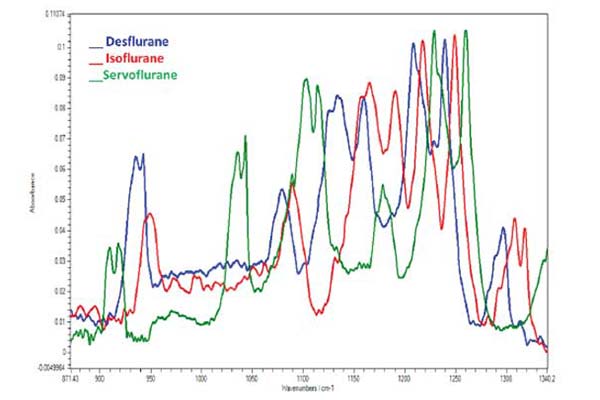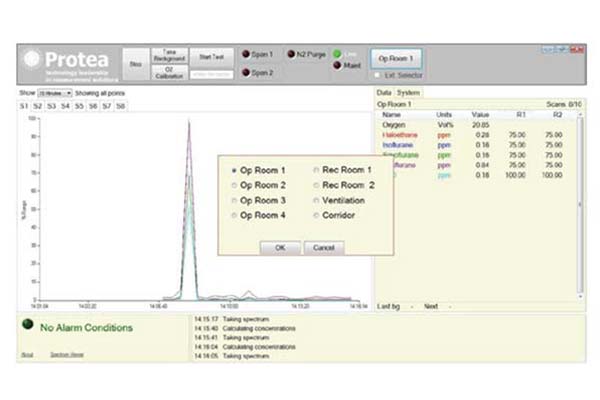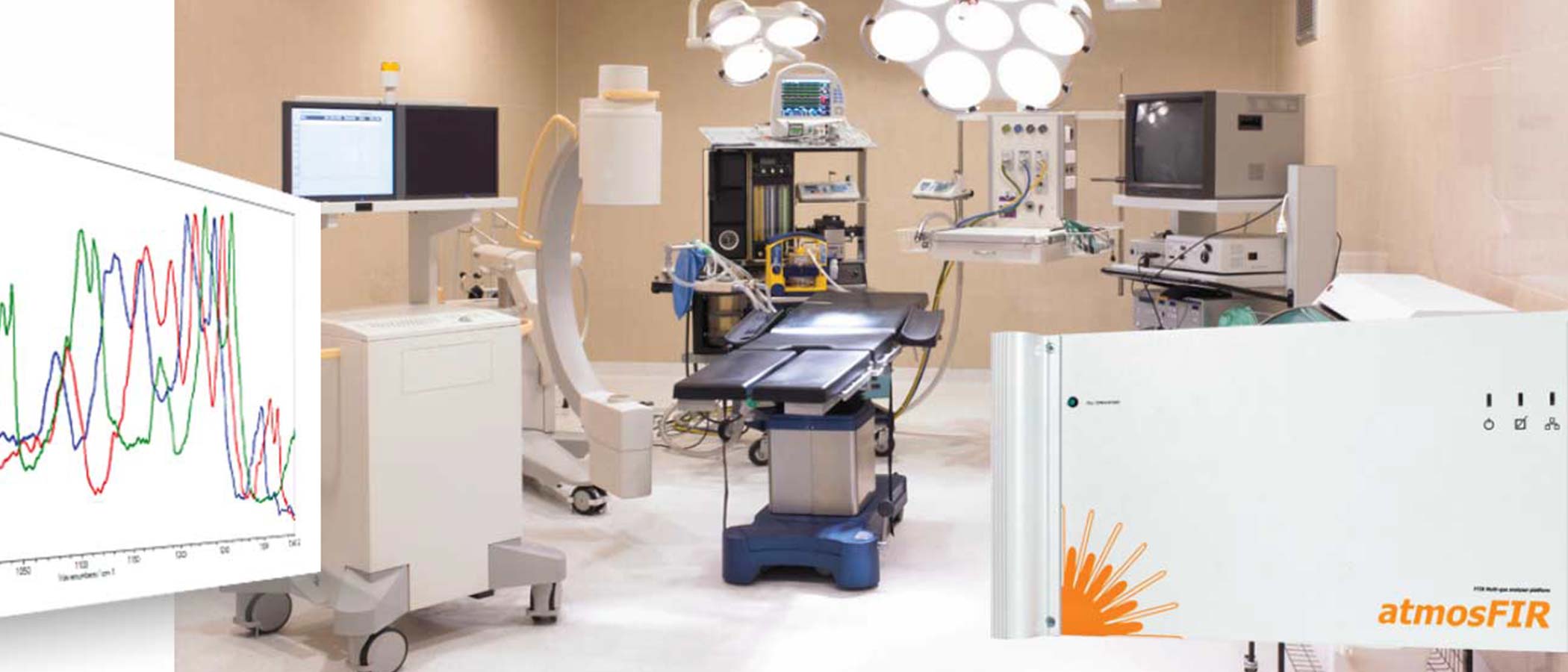Medical Workplace Monitoring
Ambient Air
In taking a responsible stance on the exposure of workers to any potential hazardous gases, there is a need for workplaces using anaesthetic gases, such as hospital operating rooms or research laboratories, to control the level of waste anaesthetic gas in the ambient air.
Anaesthesia machines, ventilators, breathing systems and waste gas scavenging systems will all contribute to the background level of he anaesthetic gases that are present in the environment within a facility, whether those machines are in a good state of repair or not. Recovery rooms can become polluted, for example from gas exhaled by the patient, and clean-up from any spills can remain in the background air for long periods.
Waste gas disposal can be carried out with a well-fonctioning non-circulating room ventilation system. However, the monitoring of trace gas levels of anaesthetic gases in the workplace allows building management systems to access and control the waste gas control system and provide workers with a safe and healthy working environment; plus that all important confidence that all is well.
atmosfir Solution
Protea's latest FTIR multigas analyser, atmosFIR, uses full spectrum infrared analysis and is able to measure all anaesthetic gases simultaneously. The analyser module with a room temperature operated DTGS detector that is ideally suited to measuring all the halogenated and other compounds present such as Halothane, Isoflurane, Sevoflurane and Desflurane.
Multigas Speciation
The key to this product is the combination of a new generation FTIR with Protea's advanced chemometric algorithm with the FTIR software which separates and quantifies each gas response individually and accurately. Protea's analysis method is real time, seamless and provides specific gas concentrations on screen, with configurable alarms to give appropriate status levels or warning. The system is also able to indicate that individual concentrations are being measured correctly and conversely if there is a problem. With an internal measurement cell optimise for workplace exposure limit measurements of anaesthetic gases, the system has a low level of detection.


Multi-stream Measurement
The atmosFIR system for workplace exposure monitoring is not limited to a single point of measurement. By incorporating a multi-stream switching system, the analyser can be programmed to a sample across a number of different measurement points in a sequence. For example, it can measure at a number of of locations within an operating theatre - such as the gas delivery equipment and at the location of waste gas removal. The controlling programme can be sequenced to allow some measurement points to be sampled for longer or shorter than others. By using easy to intall PTFE ample lines and a suitable sample flow rate, each measurement point can generate an accurate result in 30 seconds or less.
| Gas Species | Typical atmosFIR Performance | Exposure Limits & Sources | ||
|---|---|---|---|---|
| Measurement Range (ppm) | Lower Detectable Limit (ppm) | Short Term (ppm) | Long Term 8 Hr TWA/ppm | |
| Halothane | 0 - 75 | 0.1 | 2(NIOSH) | 50(ACGIH) |
| Isoflurane (Forane) | 0 - 75 | 0.1 | 2(NIOSH) | 50(ACGIH) 50(HSE) |
| Sevoflurane | 0 - 75 | 0.1 | ||
| Desflurane | 0 - 75 | 0.1 | 2(NIOSH) | 75(ACGIH) |
| Enflurane (Ethrane) | 0 - 75 | 0.1 | 2(NIOSH) | 75(ACGIH) |
| N2O | 0 - 100 | 0.05 | 25(ACGIH) | |
| Gas Species | Use in Hospital | Typical atmosFIR Performance | Exposure Limits & Sources | ||
|---|---|---|---|---|---|
| Measurement Range (ppm) | Lower Detectable Limit (ppm) | Short Term (ppm) | Long Term 8 Hr TWA/ppm | ||
| Ethylene Oxide | Sterilant | 0 - 50 | 0.05 | <0.1(NIOSH REL) | 1(ACGIH) |
| Formaldehyde | Medical Preservatives | 0 - 10 | 0.05 | <0.1(NIOSH REL ceiling) | 0.3(ACGIH) |
| Acetaldehyde | Disinfectants | 0 - 10 | 0.4 | 25(ACGIH TLV) | 200(OSHA PEL) |
| Phenol | Antiseptic, analgesic & embalming fluid | 0 - 20 | 0.2 | 5(ACGIH) | |
| Methyl Methacrylate | Bone Cement | 0 - 100 | 0.2 | <0.1(NIOSH REL) | 0(ACGIH TLV) |
